-
 Bitcoin
Bitcoin $106,782.3966
-0.72% -
 Ethereum
Ethereum $2,406.7764
-1.16% -
 Tether USDt
Tether USDt $1.0005
0.02% -
 XRP
XRP $2.0918
-1.53% -
 BNB
BNB $644.5785
-0.17% -
 Solana
Solana $141.0925
-0.69% -
 USDC
USDC $1.0000
0.02% -
 TRON
TRON $0.2721
0.18% -
 Dogecoin
Dogecoin $0.1585
-1.26% -
 Cardano
Cardano $0.5497
-1.14% -
 Hyperliquid
Hyperliquid $35.8493
-1.58% -
 Bitcoin Cash
Bitcoin Cash $502.3089
2.20% -
 Sui
Sui $2.7092
3.87% -
 Chainlink
Chainlink $12.8551
-1.85% -
 UNUS SED LEO
UNUS SED LEO $9.0548
0.53% -
 Stellar
Stellar $0.2344
-0.85% -
 Avalanche
Avalanche $17.2676
-0.23% -
 Toncoin
Toncoin $2.8282
0.56% -
 Shiba Inu
Shiba Inu $0.0...01113
-1.14% -
 Litecoin
Litecoin $83.9593
-0.93% -
 Hedera
Hedera $0.1447
0.82% -
 Monero
Monero $306.9022
-2.07% -
 Bitget Token
Bitget Token $4.6358
3.42% -
 Dai
Dai $0.9999
0.01% -
 Ethena USDe
Ethena USDe $1.0001
0.02% -
 Polkadot
Polkadot $3.3211
0.06% -
 Uniswap
Uniswap $6.8775
0.75% -
 Pi
Pi $0.5664
-0.27% -
 Aave
Aave $256.0055
1.28% -
 Pepe
Pepe $0.0...09013
-3.24%
How to hide the ETH wallet address? Privacy-enhancing protection methods
To enhance your ETH wallet privacy, use anonymous wallets, mixing services, smart contracts, stealth addresses, and decentralized exchanges to obscure transaction trails.
May 13, 2025 at 12:28 am
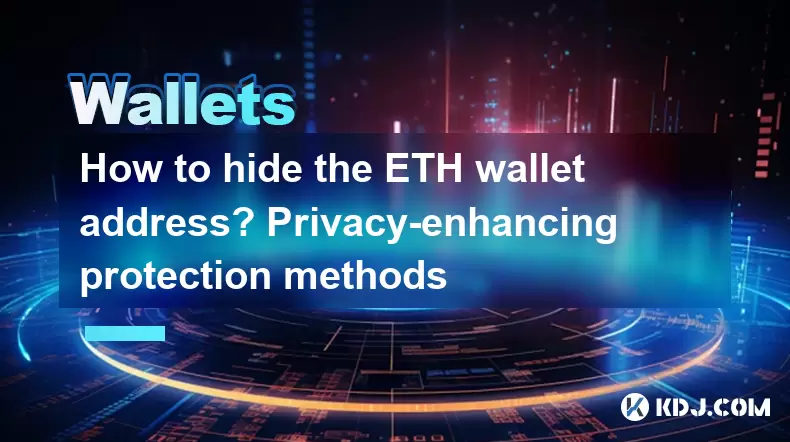
Protecting your Ethereum (ETH) wallet address is crucial for maintaining privacy and security within the cryptocurrency space. With the growing concerns over privacy breaches and hacking attempts, it is essential to understand various methods that can help you hide your ETH wallet address effectively. This article will delve into several privacy-enhancing protection methods, offering detailed guidance on how to implement them.
Using Anonymous Wallets
One of the most straightforward ways to hide your ETH wallet address is by using anonymous wallets. These wallets are designed to enhance privacy by not requiring personal information during setup and often come with features that obscure transaction trails.
- Download and install an anonymous wallet: Choose a reputable wallet that supports anonymity, such as Wasabi Wallet or Samourai Wallet. Download the wallet from its official website to avoid malicious software.
- Set up the wallet: Follow the on-screen instructions to set up your wallet. Typically, you will need to generate a new seed phrase and secure it in a safe place.
- Use the wallet for transactions: When you need to send or receive ETH, use your anonymous wallet instead of your primary wallet. This helps to keep your main wallet address hidden from the public blockchain.
Utilizing Mixing Services
Mixing services, also known as tumblers, are another effective method for enhancing privacy. These services mix your ETH with other users' coins, making it difficult to trace the origin of the funds.
- Choose a reputable mixing service: Research and select a trustworthy mixing service. Popular options include Tornado Cash and ChipMixer.
- Send your ETH to the mixing service: Transfer the amount of ETH you want to anonymize to the mixing service's designated address.
- Receive anonymized ETH: After the mixing process, you will receive new ETH at a different address, which breaks the link to your original wallet address.
Leveraging Smart Contracts
Smart contracts can be used to create decentralized privacy solutions. Platforms like Ethereum allow developers to build smart contracts that can obscure the flow of funds.
- Find or develop a privacy-focused smart contract: Look for existing smart contracts that offer privacy features, or consider developing your own if you have the technical skills.
- Interact with the smart contract: Use your wallet to interact with the smart contract. This can involve sending ETH to the contract, which then redistributes it in a way that hides your original address.
- Monitor the transaction: Keep an eye on the transaction to ensure it completes successfully and your privacy is maintained.
Implementing Stealth Addresses
Stealth addresses are a cryptographic technique that allows you to receive funds without revealing your actual wallet address. This method is particularly useful for maintaining privacy in public transactions.
- Set up a wallet that supports stealth addresses: Some wallets, like Monero, inherently support stealth addresses. If you are using an ETH wallet, you might need to find a compatible wallet or use a third-party service.
- Generate a stealth address: Use your wallet to generate a new stealth address for each transaction. This address is unique and cannot be linked back to your main wallet.
- Share the stealth address: When someone wants to send you ETH, share the stealth address instead of your primary wallet address.
Using Decentralized Exchanges (DEXs)
Decentralized exchanges (DEXs) offer another layer of privacy by allowing you to trade cryptocurrencies without needing to provide personal information. Some DEXs also support features like atomic swaps, which can help hide your wallet address.
- Choose a privacy-focused DEX: Select a DEX that prioritizes user privacy, such as Uniswap or SushiSwap.
- Set up a new wallet for the DEX: Create a new wallet specifically for use with the DEX. This helps to keep your main wallet address separate from your trading activities.
- Trade on the DEX: Use the DEX to swap your ETH for other cryptocurrencies or back to ETH. The transactions on the DEX will not directly link back to your primary wallet address.
Frequently Asked Questions
Q: Can I completely hide my ETH wallet address from the blockchain?
A: While it is not possible to completely hide your ETH wallet address from the blockchain, the methods discussed in this article can significantly enhance your privacy by making it difficult to trace transactions back to your main wallet.
Q: Are there any risks associated with using mixing services?
A: Yes, there are risks involved with mixing services. Some services might be scams, and using them could result in the loss of your funds. Additionally, mixing services may be subject to regulatory scrutiny, which could affect their availability and legality.
Q: How often should I generate new stealth addresses?
A: It is recommended to generate a new stealth address for each transaction to maximize privacy. This ensures that each transaction is linked to a unique address, making it harder to trace back to your main wallet.
Q: Can I use these methods for other cryptocurrencies besides ETH?
A: Some of these methods, like anonymous wallets and mixing services, are specific to certain cryptocurrencies. However, the concept of using stealth addresses and smart contracts for privacy can be applied to other blockchain networks that support similar features. Always research the specific cryptocurrency and its ecosystem to find the most effective privacy-enhancing methods.
Disclaimer:info@kdj.com
The information provided is not trading advice. kdj.com does not assume any responsibility for any investments made based on the information provided in this article. Cryptocurrencies are highly volatile and it is highly recommended that you invest with caution after thorough research!
If you believe that the content used on this website infringes your copyright, please contact us immediately (info@kdj.com) and we will delete it promptly.
- Smart Investors Navigate the AI Token Frenzy: Bitcoin Switch and Beyond
- 2025-06-28 12:30:12
- Crypto in 2025: How Web3 AI is Poised to Dominate
- 2025-06-28 12:30:12
- Solana's Support Level Holds as MACD Crossover Hints at Potential Bullish Reversal
- 2025-06-28 12:50:12
- Cathie Wood's Ark Invest: Navigating Coinbase (COIN) and SoFi (SOFI) in a Shifting Market
- 2025-06-28 12:53:43
- Crypto 2025: Spotting the Top Coins with Real Utility
- 2025-06-28 12:42:12
- Pepe Price's Wild Ride: Cryptocurrency Milestone or Just Another Meme?
- 2025-06-28 12:42:13
Related knowledge

How to stake cryptocurrencies on Coinbase? Benefits and risks
Jun 27,2025 at 06:36pm
Understanding Cryptocurrency Staking on CoinbaseStaking cryptocurrencies involves locking up digital assets to support the operations of a blockchain network, typically in return for rewards. Coinbase, one of the most popular cryptocurrency exchanges globally, offers staking services for several proof-of-stake (PoS) coins. Users can stake their holdings...
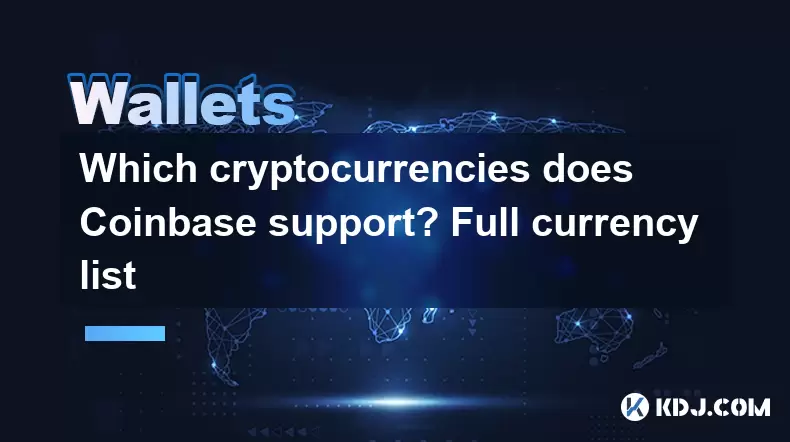
Which cryptocurrencies does Coinbase support? Full currency list
Jun 28,2025 at 08:36am
Overview of Cryptocurrencies Supported by CoinbaseCoinbase is one of the most popular and trusted cryptocurrency exchanges globally. It provides users with a platform to buy, sell, trade, and store various digital assets. As of the latest updates, Coinbase supports over 200 cryptocurrencies, including major ones like Bitcoin (BTC), Ethereum (ETH), and L...
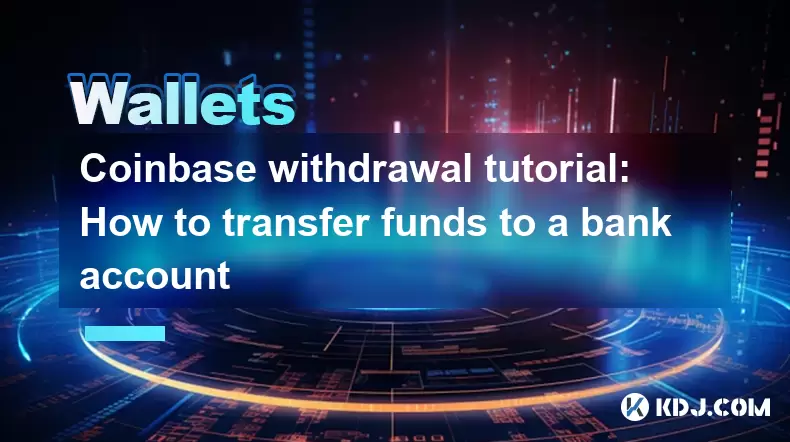
Coinbase withdrawal tutorial: How to transfer funds to a bank account
Jun 28,2025 at 02:35am
Understanding Coinbase WithdrawalsCoinbase is one of the most widely used cryptocurrency platforms, allowing users to buy, sell, and store digital assets. Once you've successfully traded or held your crypto on Coinbase, the next logical step may be to withdraw funds to a bank account. This process involves converting your cryptocurrency into fiat curren...
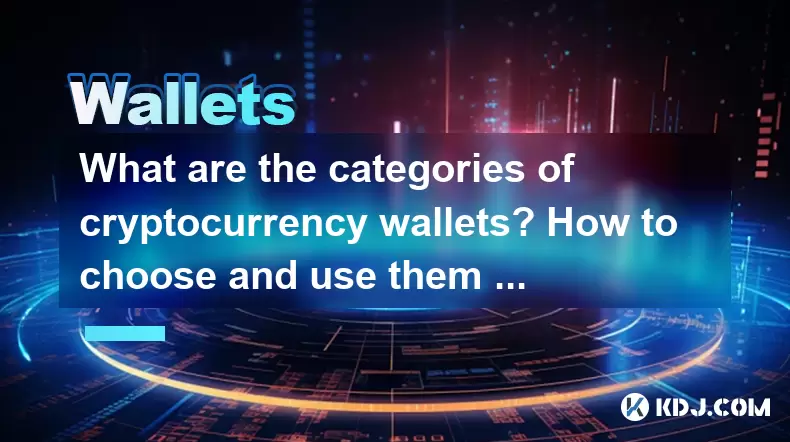
What are the categories of cryptocurrency wallets? How to choose and use them safely?
Jun 21,2025 at 10:42pm
Understanding Cryptocurrency WalletsCryptocurrency wallets are essential tools for anyone involved in the digital asset ecosystem. They allow users to store, send, and receive cryptocurrencies securely. Unlike traditional wallets that hold physical money, crypto wallets manage cryptographic keys—private and public—which interact with blockchain networks...
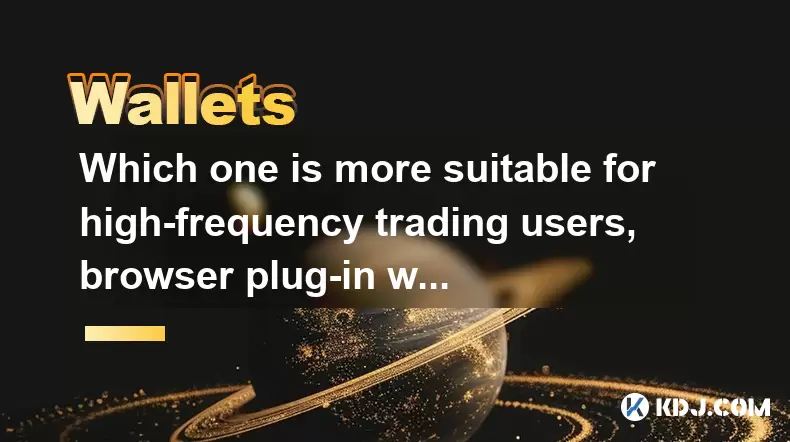
Which one is more suitable for high-frequency trading users, browser plug-in wallets or independent application wallets?
Jun 23,2025 at 08:22am
Understanding the Role of Wallets in High-Frequency TradingFor high-frequency trading (HFT) users in the cryptocurrency market, wallet selection is critical due to the need for speed, security, and seamless integration with trading platforms. HFT involves executing a large number of trades within seconds or even milliseconds, which demands a wallet that...

What are the differences between the operating mechanisms of on-chain wallets and off-chain wallets? Is there a big difference in transaction fees?
Jun 25,2025 at 08:49am
Understanding On-Chain WalletsOn-chain wallets are digital wallets that directly interact with the blockchain network. These wallets store users' private keys, which are essential for signing and authorizing transactions on the blockchain. When using an on-chain wallet, every transaction must be recorded and verified by the decentralized nodes in the ne...

How to stake cryptocurrencies on Coinbase? Benefits and risks
Jun 27,2025 at 06:36pm
Understanding Cryptocurrency Staking on CoinbaseStaking cryptocurrencies involves locking up digital assets to support the operations of a blockchain network, typically in return for rewards. Coinbase, one of the most popular cryptocurrency exchanges globally, offers staking services for several proof-of-stake (PoS) coins. Users can stake their holdings...

Which cryptocurrencies does Coinbase support? Full currency list
Jun 28,2025 at 08:36am
Overview of Cryptocurrencies Supported by CoinbaseCoinbase is one of the most popular and trusted cryptocurrency exchanges globally. It provides users with a platform to buy, sell, trade, and store various digital assets. As of the latest updates, Coinbase supports over 200 cryptocurrencies, including major ones like Bitcoin (BTC), Ethereum (ETH), and L...

Coinbase withdrawal tutorial: How to transfer funds to a bank account
Jun 28,2025 at 02:35am
Understanding Coinbase WithdrawalsCoinbase is one of the most widely used cryptocurrency platforms, allowing users to buy, sell, and store digital assets. Once you've successfully traded or held your crypto on Coinbase, the next logical step may be to withdraw funds to a bank account. This process involves converting your cryptocurrency into fiat curren...

What are the categories of cryptocurrency wallets? How to choose and use them safely?
Jun 21,2025 at 10:42pm
Understanding Cryptocurrency WalletsCryptocurrency wallets are essential tools for anyone involved in the digital asset ecosystem. They allow users to store, send, and receive cryptocurrencies securely. Unlike traditional wallets that hold physical money, crypto wallets manage cryptographic keys—private and public—which interact with blockchain networks...

Which one is more suitable for high-frequency trading users, browser plug-in wallets or independent application wallets?
Jun 23,2025 at 08:22am
Understanding the Role of Wallets in High-Frequency TradingFor high-frequency trading (HFT) users in the cryptocurrency market, wallet selection is critical due to the need for speed, security, and seamless integration with trading platforms. HFT involves executing a large number of trades within seconds or even milliseconds, which demands a wallet that...

What are the differences between the operating mechanisms of on-chain wallets and off-chain wallets? Is there a big difference in transaction fees?
Jun 25,2025 at 08:49am
Understanding On-Chain WalletsOn-chain wallets are digital wallets that directly interact with the blockchain network. These wallets store users' private keys, which are essential for signing and authorizing transactions on the blockchain. When using an on-chain wallet, every transaction must be recorded and verified by the decentralized nodes in the ne...
See all articles























































































